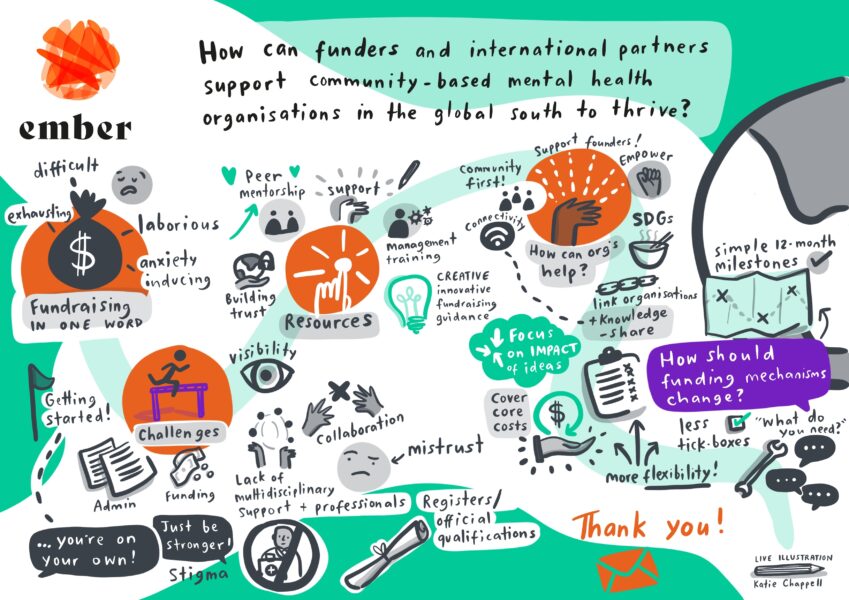How can funders support community-based mental health organisations to thrive? Four practitioners share their view
Jul 08, 2022

Local organisations in low- resource settings are a critical force in the effort to address the mental health care gap. However, scarce resources constantly threaten their survival. A recent Ember survey highlighted what we already know: there are huge challenges in securing funding in mental health, particularly for community-based initiatives.
In June, we hosted a live webinar to discuss how funders and international partners can do more and do better to help community-based mental health organisations to grow and thrive long-term.
Four practitioners from Ember's community of partners spoke at the webinar to share their insights about the challenges they face, the obstacles that make it harder to secure funding, and how funders can change their practices to better suit the needs of community-based initiatives.
Here are a few recommendations from the speakers about how funders and international partners can best support community-based mental health organisations to thrive:
- Cover core costs: staff salaries, administrative support, office space - these are all critical ingredients for smooth delivery of services. Without them it's extremely hard for CBOs to become sustainable, not to mention the huge toll it takes on their mental health - and yet lots of funding opportunities don't cover core organisational costs.
- Ask fundees what they need and be responsive to what they say: the idea of two-way communication and genuine listening between funder and fundee shouldn't be radical, but it is. This is a critical way in which the power imbalance in funder/fundee relationships can be addressed, according to the speakers.
- Take a chance on smaller organisations: funding opportunities often have barriers or criteria that rule smaller organisations out of the running for funding opportunities, such as somewhat arbitrary-feeling minimum income requirements. Genuinely making opportunities accessible for community-based organisations will require funders to create flexibility in those criteria, or lower those barriers.
- Foster trust with fundees: rather than imposing strategic priorities on fundees, burdening them with huge bureacratic reporting systems and having rigidly restricted funds, funders should introduce some flexibility into how they provide funds, with simple milestones to report to and unrestricted funding that frees team time up to focus on the work itself. As one speaker said: "It's very rare to get urestricted funding but if you want to support these community initiaitves sometimes you need to trust the founders and leadership teams of the organisations you have chosen, because they have the vision of what's needed in their community."
Thanks to PDO Kenya, Giselle Dass of Child, Adolescent and Family Services (CAFS) Sri Lanka, Yvonne Gache of Green String Network, Kenya, and Vongai Munatsi of Renewal Trust, Zimbabwe for sharing your time and invaluable expertise.
Thank you also to the supremely talented Katie Chappell for bringing the discussion to life with her brilliant live scribing throughout the event!